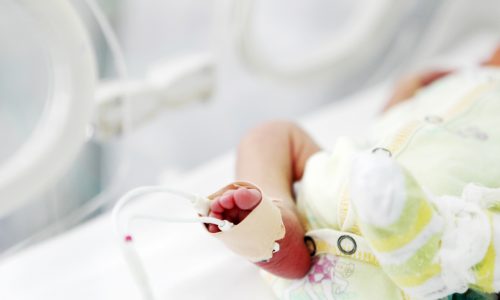Call today and speak to our specialist birth injury solicitors. Find out if you can claim compensation.
CALL 0800 083 5500
Mothers who have sustained a birth injury may be entitled to claim compensation where this was caused by poor care or medical negligence.

There are a variety of instances where negligent care provided by medical staff responsible for looking after you during the birthing process can result in injuries. Where this is the case you may be entitled to compensation for your pain and suffering. Negligent care can occur in the lead up to, during or immediately after giving birth, so there are potentially several circumstances of negligence that can provide grounds for a medical negligence claim.
Pre-eclampsia is a condition which affects a relatively low proportion of pregnant women, usually during the second half of their pregnancy or soon after the baby is delivered. Whilst the exact cause of Pre-Eclampsia is not known, it has been linked to problems relating to the placenta.
A c-section, or caesarean, is a surgical procedure to deliver a baby, by way of incision through the stomach and the uterus.
Gestational diabetes is a condition that can occur at any stage of pregnancy, although more frequently in the second or third trimester. It occurs when there is high blood sugar (glucose), because your body is unable to produce enough insulin, to meet additional requirements during pregnancy.
Polyhydramnios is the term used when there is too much amniotic fluid around the baby during pregnancy. Amniotic fluid refers to the fluid surrounding the baby, however, when there is too much fluid there is an increased chance of complications.
Like all other cases of medical negligence, in most circumstances, you will have three years from the date of the incident to bring forward a birth injury claim. If you were not aware that any negligent act had occurred until a later date, the three-year time limit begins once you have become aware of negligence. Trying to bring a claim forward after the limitation period has been reached will be extremely difficult.
There are some exceptions to the limitation period which can apply in cases of birth injury. If the injury is to a baby, then you will have until the child’s 18th birthday to start a claim. However, if the injury is to the mother, then it is more likely that the standard 3-year limitation period will apply.
Limitation periods can be difficult to establish in cases, so if you’re unsure speak to one of our team today who can help you with your claim.
Blackwater Law successfully represented the family of baby Blake in making a midwife negligence claim after the community midwife failed to notice a severe medical abnormality.
Establishing how much compensation you could receive in a birth injury claim is often difficult. Each claim is different and each family that is affected will be in different circumstances and require varying degrees of future assistance. All of this will be factored in when it comes to calculating the compensation awarded in your claim.
The level of compensation will be greatly affected by the severity of the injury on the mother, and the implication the injury has for the rest of the mother’s life. For example, if the injury is so severe that it affects the mother’s ability to work in the future, then there could be significant compensation claimed for loss of earnings.
As with most medical negligence cases, it’s difficult to give a timeframe for how long your claim could take. Every case is different and will involve varying levels of evidence, discussions and investigations which all influence how long a claim could take.
The amount of time the claim will take will depend on a multitude of factors such as how long ago the incident happened, how many institutions were involved in the care, and of course the overall complexity of the claim.
We understand that if you are considering making a claim for clinical negligence compensation relating to birth injuries to the mother, you may be worried about legal fees. At Blackwater Law, we undertake all medical negligence claims – including those for birth injuries to mothers – on a no-win, no-fee basis.
Blackwater Law successfully represents clients across the country in making medical negligence claims relating to birthing injuries to mothers and children. Our team of expert solicitors is independently recognised for their expertise in medical negligence by a directory of the country’s leading law firms.
So when you contact Blackwater Law for advice, you know that you will receive some of the best advice, guidance and representation available.
